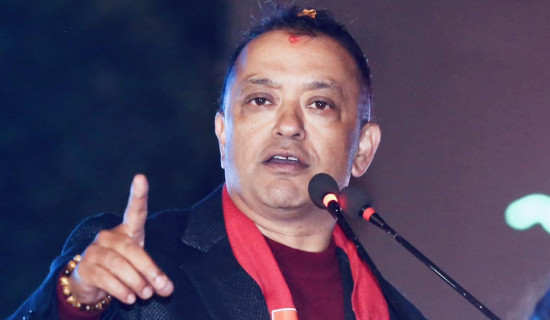- Saturday, 17 January 2026
Good Growth Forecast
Nepal's economy will grow by 5.1 per cent in the Fiscal Year (FY) 2024/25 from 3.9 per cent in the last FY, the World Bank (WB) has projected. The growth will be driven by anticipated high tourist arrivals, along with increased hydropower and paddy production. And the private sector is expected to contribute to much of this growth. The economy is also expected to benefit from the central bank's relaxing of monetary policy and easing of regulatory requirements. Earlier, the Asian Development Bank (ADB) set the growth rate at 4.9 per cent for the current fiscal. Both the estimates are below the projections of six per cent made by the government through the budget for this year.
However, the WB identifies multiple risks to the outlook, including heightened vulnerabilities in the financial system such as a rise in non-performing loans that may limit private sector credit growth, potential policy discontinuity that could deter investment, delays in the execution of the capital budget affecting infrastructure development, and regional instability and trade disruptions that could adversely impact tourism and domestic demand.
But, the projections, in all likelihood, have been made without taking into account effects the recent widespread destruction – caused by massive floods and landslides triggered by rainfalls of biblical proportions across the country – will have on the economy. Many hydropower infrastructure have been left damaged or washed away, as are hundreds of homes. Not to mention hundreds of lives lost. By one estimate, the disasters have caused Rs. 17 billion in infrastructural and other damages.
In many places vital roads and bridges serving as life-blood for business and other critical services have caved in, severed or washed away. How will the government foot the bill to restore these crucial infrastructure? Failing to get them back in service will have detrimental impact on the economy. The more delay it gets in bringing them back, the severer will be the impact. So the government has no time to waste to spring into action to achieve that end. Mobilising its machineries and resources to collect this fund is a viable option at the government's disposal.
The devastation has laid bare poor urban planning that entailed setting up of settlements in encroached river banks with total disregard to its consequences in the event of rains of such scale as well as haphazard construction. The overwhelmed sewage system, especially in the Kathmandu Valley, that crumbled or spilled excess floodwater, unable to accommodate the sudden spike in water level, is a case in point of this failure. The disaster should teach us a lesson in why elaborate planning that factors in every probable scenario before any construction begins is critically important. Only by doing this can we build resilient infrastructure. And that matters hugely in the age of disasters related to climate change.
Once a flood of money is unleashed to the market to build them back better, our economy will surely get a much-needed dose of momentum. The government needs to liken this moment to a window of opportunity to spur sustainable development. Doing this will create a good domestic market that employs many of our youths, obviating the need to go abroad as migrant worker. This is urgent because we cannot rely on remittance to fuel economic growth. As the prices of oil is falling in international market, the petro-states which are also our major labour destinations are already witnessing tepid growth and things there are poised to go south further should the prices fall further or even stay at present level. No doubt, this will hit hard the remittances. So, to create job opportunities in the country, the suggestions by the WB – that the country needs to make a leap in its investment in human capital – should be heeded.

















